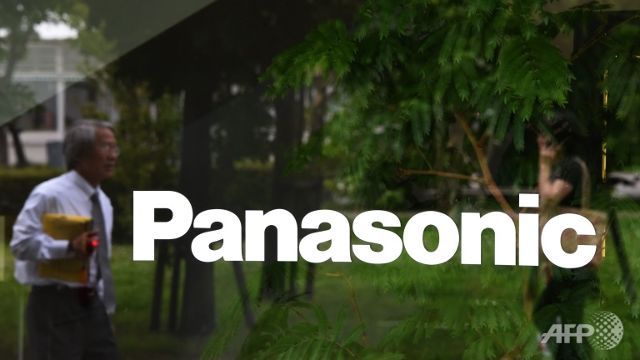Panasonic shifts HQ for refrigeration compressor business to Singapore
 |
| Passers-by are reflected on the window of the Panasonic Centre in Tokyo on Jul 29, 2015. (Photo: AFP/Toshifumi Kitamura) |
This is the first time Panasonic has relocated the global headquarters of a business unit outside of Japan. The relocated headquarters will be situated within Panasonic Appliances Refrigeration Devices Singapore.
Panasonic will also upgrade its research and development (R&D) centre in Singapore, where it will take on a global leadership role and spearhead research for new productions and emerging refrigeration technologies for the firm’s global operations. This is expected to double the size of its R&D centre here, the company said.
Also in the works is the transformation of Panasonic’s manufacturing plant. It will evolve its traditional manufacturing operations to what is called "smart manufacturing" - with a digitally enabled factory that will have automated guided vehicles for transportation of parts, a centralised storage area and consolidated operations.
The Japanese firm will also tap on big data and automation to streamline operations, a move that is expected to take place over the next five years.
Panasonic said it is committed to working with Singaporeans to increase their skill sets and build deep capabilities. The presence of the refrigeration compressor business unit's global R&D centre in Singapore is expected to allow Singaporeans to take up leadership roles and drive innovative change across the region, it said.
TECH MAY REPLACE SOME JOBS, BUT ALSO CREATE NEW ONES
Speaking at the launch on Friday, Manpower Minister Lim Swee Say emphasised that Singapore must be committed to partner technology to “innovate pervasively across all sectors of our economy”.
Acknowledging that there are concerns about technology taking away jobs, Mr Lim said that while technology may replace some jobs, it can also create new and better ones.
Citing Panasonic as an example, the minister said: “Instead of ‘robotisation’, what we see here is ‘cobotisation’ - workers and robots working together as co-workers. With upgrading of skills and improvement in productivity, the median salary of local staff has increased by 35 per cent with this transformation.”
Meanwhile, Mr Lim said that as an export-oriented economy, it is important for Singapore to recognise the pace of transformation “is dictated not by our local readiness, but by global competition”. But some companies may lack the expertise to grow their operations here, he said.
“Hence, it is to our own interest to support companies to have access to global expertise where necessary. At the same time, we will help our locals to learn faster and adapt better so that, progressively, they can acquire the expertise and experience to take on more duties and responsibilities.”
What the stars mean:
★ Poor ★ ★ Promising ★★★ Good ★★★★ Very good ★★★★★ Exceptional
Latest News
More News
- Vietnam sets ambitious dairy growth targets (February 24, 2026 | 18:00)
- Masan Consumer names new deputy CEO to drive foods and beverages growth (February 23, 2026 | 20:52)
- Myriad risks ahead, but ones Vietnam can confront (February 20, 2026 | 15:02)
- Vietnam making the leap into AI and semiconductors (February 20, 2026 | 09:37)
- Funding must be activated for semiconductor success (February 20, 2026 | 09:20)
- Resilience as new benchmark for smarter infrastructure (February 19, 2026 | 20:35)
- A golden time to shine within ASEAN (February 19, 2026 | 20:22)
- Vietnam’s pivotal year for advancing sustainability (February 19, 2026 | 08:44)
- Strengthening the core role of industry and trade (February 19, 2026 | 08:35)
- Future orientations for healthcare improvements (February 19, 2026 | 08:29)
















 Mobile Version
Mobile Version